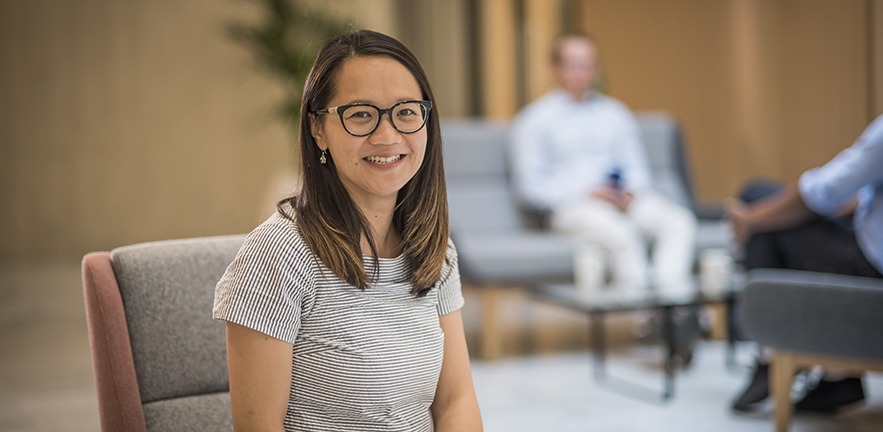You’re sold on the idea of applying to business school, but how do you pay the fees, and cover living expenses for a full-time degree?
Here we give seven tips on funding options for the Cambridge Judge Masters programmes, and also some general words of advice to help you in your research and planning.
1. Plan early
Plan your financial approach to covering fees early (and living expenses for full-time programmes); we recommend exploring financial options at least a year before you intend to start applying, as it can take time to pull potentially different sources together.
You need to decide whether you want a programme which requires you to give up full-time employment, such as the MBA or Master of Finance (MFin) programmes, or a part-time programme, such as the Executive MBA (EMBA), Master of Entrepreneurship, Social Innovation or Accounting, which allows you to continue working and earning your salary during the degree.
Building up some of your own savings is a good plan – in the year or more before entry to your masters programme, think about personal savings you can make by implementing lifestyle changes, where possible. Is there anything you can go without while you save for your studies? Many students fund themselves through private savings and prepare for this by building up personal capital before they start their programme.
2. Scholarships are attractive, but remember your end goal
The availability of scholarships is widespread at business schools but be careful to consider scholarship offers against your fit for each programme you’re applying for. You need to balance your financial requirements against your own aims for outcomes from your masters, and where you really want to be.
There are a range of scholarships available to Cambridge students, ranging from Cambridge Judge Business School (CJBS) scholarships, to University of Cambridge and College scholarships, and external funding. Remember to look carefully at the admissions schedule and scholarship deadlines for your chosen programme – often the deadlines occur before the end of the annual admissions cycle.

Those with strong academic achievements are encouraged to apply in the earlier rounds, in order to be eligible for a range of merit-based MBA and MFin scholarships, such as St Catharine’s College Benavitch Scholarship, or the Boustany Foundation MBA Scholarship.
“An MBA is a significant investment and scholarships go a long way in alleviating some of the financial burden. Given the nature of my interests, the scholarship I received meant that I can focus on careers that have a clear environmental impact beyond financial returns” says MBA alumnus and Senior Economist at Vivid Economics, Julian Payne.
3. Non-CJBS scholarships
There are many organisations who will contribute towards study for a business masters, and many of these are listed on our website, for example the British Council and Chevening Scholarships. The amount they offer varies, and they are often based on nationality, such as the Fundação Estudar for Brazilian students, and the SIM-You Poh Seng Scholarship for candidates from Singapore.
Please check each programme website carefully to view the list of scholarships available, and do you research in your home country for national scholarships available.
You can also find more information on the UK government website for options open to international students wishing to study in the UK.
4. Ask your employer
This is still very much a well-trodden route for those wishing to pursue a business masters, particular a full-time or Executive MBA. Depending on your company, you might wish to start the conversation with your line manager or even directly with the Human Resources department from an early stage.
The company funding awarded could be on either a full or part funding basis. In some cases, finding someone in your company who has previously taken your chosen programme and can support your case is a good idea. For part-time programmes, it is worth speaking to alumni of the programme, because they can provide specific examples of how they can immediately apply what they learn over the periods of study to their workplace when they return to work. This will help build a student’s case for their employer to help by providing financial assistance or time off.

Also, be realistic – part funding is more common than a full company sponsorship. There is likely to be a written arrangement about whether you must returning to the company (if you’re doing a full-time programme). You might wish to ensure there is some flexibility in any ‘return to work contract’ to ensure you have the option to change department, role or even country for that same employer.
Current Master of Accounting student John Maslin says “My organisation has a programme that allows you to apply for funding once you have gained entry into a masters programme. The key condition is that you must explain how each course is related to your daily job responsibilities and how it will make you a more effective team member – an easy task when I showed them the list of courses for the Cambridge Master of Accounting (MAcc).”
5. Don’t be apprehensive about loans
Prodigy Finance and Lendwise are both loan providers, that specialise in loans for postgraduate students at leading business schools, including Cambridge Judge.*
The University of Cambridge is a recognised education provider, and as such is accepted by many funding bodies such as United States and Canada federal loans.
6. Consider the family framework
Students typically call on family and extended family to support their career transition. It might be that some of the funds, perhaps the equivalent of the reservation fees, could be raised just by those closest to you. It’s important to remember that our graduates often go on to command a salary premium relative to direct-from-industry and bachelors degree hires.
7. Leverage your assets
Put your finance plan together and consider having a funding back-up plan. Alongside your wider network of family and friends, you might also look at any assets you could leverage. Taking out a loan against a property, for example, may be feasible if you are planning to work in another country altogether after your degree, and the initial loan can be offset against future rental values.
It is worth remembering that not all funding needs to be in place at the time of your application. It is at the offer acceptance stage that you will need to evidence that you have the funds in place.
Alison Greenwood, Head of Admissions and Marketing, Cambridge Executive MBA says: “We understand that Investing in a business Masters degree is a big decision, but the outcomes for Cambridge Judge alumni prove the worth of the investment, time and again. The Admissions teams here at CJBS understand the funding options available to the various programmes and can help you consider how to meet the cost. Start planning early, be open minded, and keep sight of your end goal – the opportunities unveiled by a Cambridge degree, and the lifetime network you’ll join, are well worth the undertaking.”
*The University of Cambridge is not a lender and is not recommending, endorsing or in any way connected with lenders listed here. The University is providing this link for information only and without guarantee of accuracy. We recommend that candidates investigate all financing options available to them, including local options.


